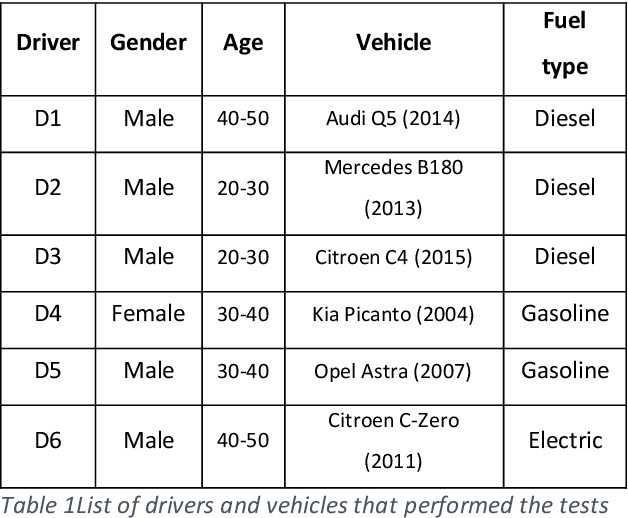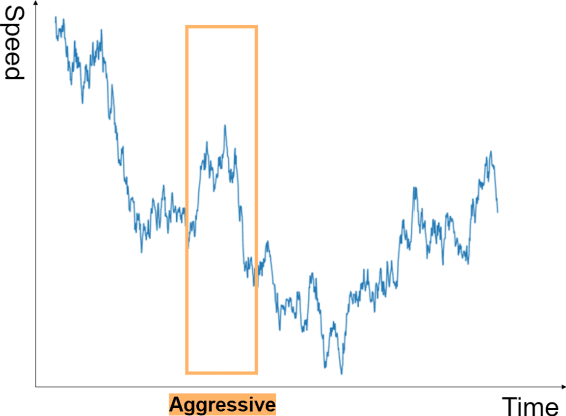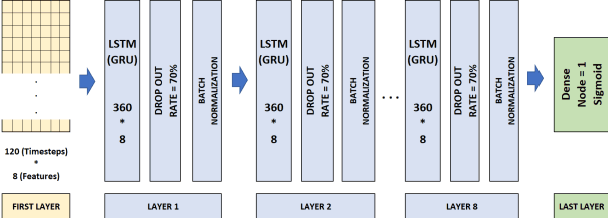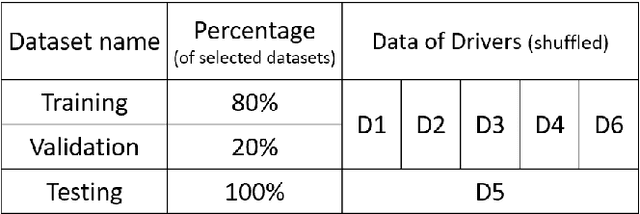Deep Learning Approach for Aggressive Driving Behaviour Detection
Paper and Code
Nov 08, 2021



Driving behaviour is one of the primary causes of road crashes and accidents, and these can be decreased by identifying and minimizing aggressive driving behaviour. This study identifies the timesteps when a driver in different circumstances (rush, mental conflicts, reprisal) begins to drive aggressively. An observer (real or virtual) is needed to examine driving behaviour to discover aggressive driving occasions; we overcome this problem by using a smartphone's GPS sensor to detect locations and classify drivers' driving behaviour every three minutes. To detect timeseries patterns in our dataset, we employ RNN (GRU, LSTM) algorithms to identify patterns during the driving course. The algorithm is independent of road, vehicle, position, or driver characteristics. We conclude that three minutes (or more) of driving (120 seconds of GPS data) is sufficient to identify driver behaviour. The results show high accuracy and a high F1 score.
 Add to Chrome
Add to Chrome Add to Firefox
Add to Firefox Add to Edge
Add to Edge